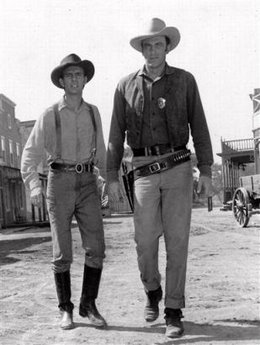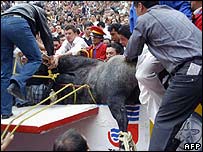His "Earthship" home was the most visible of Weaver's crusades. He and his wife, Gerry, built the solar-powered Colorado dwelling out of recycled tires and cans. The thick walls helped keep the inside temperature even year-round. "When the garbage man comes," Jay Leno once quipped, "how does he know where the garbage begins and the house ends?" Weaver responded: "If we get into the mind-set of saving rather than wasting and utilizing other materials, we can save the Earth."
With these older actors dying lately (Don Knotts over the weekend as well- maybe I’ll post about him as well, keeping the theme of the week), it’s causing me to think about the differences in TV then and TV now. I came in on the end of Gunsmoke but I loved it. One of my lasting memories of times with my mother was watching old reruns of Gunsmoke, and other poorly made cop shows with her in the 70’s. But there was a thread of something that was found in these shows. There was a general morality by which most of the characters led their lives. There were lessons to be learned every week about how we treat people (Andy Griffith comes to mind for that one, with Barney – Knotts- learning most of those lessons). There was also stuff that we just didn't feel the need to show. Now, TV seems to go for the gross-out, the most incredible, and the most revealing, immoral projection of humanity. I think I’ll take the Mayberry, Gunsmoke, Christmas Story life over any of that. Let’s keep paying for the reruns!












